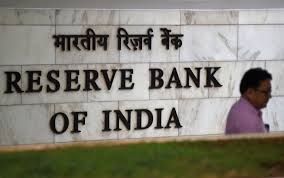On Thursday, the Reserve Bank of India announced it was waiving off charges that are applied on bank transfers carried out either by National Electronic Funds Transfer (NEFT) or Real Time Gross Settlement System (RTGS). The central bank asked consumer banks to pass on this benefit to customers, essentially asking banks to NEFT and RTGS transfers free of cost.
HIGHLIGHTS
- RBI has removed charges for NEFT, RTGS payments. It has asked banks to pass on benefits to customers.
- RTGS is used for transferring high value amounts. The minimum amount that can be currently transferred is Rs 2 lakh.
- This move will benefit the small traders who deal in small value transactions and operates on small margins.
- SBI charges Re 1 to Rs 5 for NEFT, and Rs 5 to Rs 50 for RTGS
- RBI said it was scrapping the charges to promote digital transactions
- RBI also announced a cut of 25 basis point in its lending rate
The Real Time Gross Settlement System (RTGS) is meant for large-value instantaneous fund transfers while the National Electronic Funds Transfer (NEFT) System is used for fund transfers up to Rs 2 lakh.
The State Bank of India (SBI) currently charges between Re 1 and Rs 5 for NEFT transactions and between Rs 5 and Rs 50 for RTGS
In its statement on developmental and regulatory policies after the Monetary Policy Committee’s meeting, the RBI said it levies minimum charges on banks for transactions routed through RTGS and NEFT system for other fund transfers. Banks, in turn, levy charges on their customers.
While announcing the scrapping of charges on RTGS and NEFT transactions, the RBI said it was doing so to boost digital transactions.
There may be even more good news for customers as far as charges on transactions are concerned. The RBI announced it was setting up a panel to review charges imposed by banks on ATM withdrawals.
These announcements were made at the end of the RBI’s bi-monthly monetary policy meeting. The RBI announced a reduction of 25 basis points in the repo rate. The repo rate, which is the interest rate at which the central bank lends money to commercial banks, now stands at 5.75 percent. The RBI’s rate cut see interest rates on home and car loans come down.
“Banks will be required, in turn, to pass these benefits to their customers. Instructions to banks in this regard will be issued within a week,” the central bank said.
Meanwhile, the RBI has decided to set up a committee to review the charges levied on the use to ATMs as the usage by the public has been growing significantly.

Leave a Reply